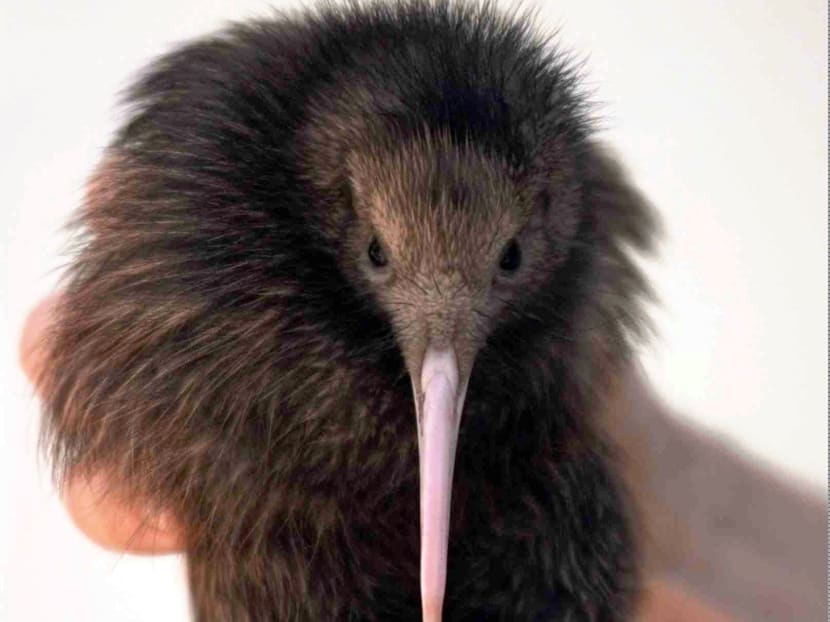Kiwi DNA study reveals bird lost colour vision
BERLIN — Scientists say they have sequenced the genome of the brown kiwi for the first time, revealing that the shy, flightless bird likely lost its ability to see colours after it became nocturnal tens of millions of years ago.

In this Sept 26, 1997, file photo, a handler holds Tuatahi, a three week old Kiwi bird, the first kiwi born at Sydney's Taronga Zoo for more than 26 years. Photo: AP
BERLIN — Scientists say they have sequenced the genome of the brown kiwi for the first time, revealing that the shy, flightless bird likely lost its ability to see colours after it became nocturnal tens of millions of years ago.
Inspection of the kiwi's DNA also showed greater diversity than in other birds in genes responsible for smell, indicating that New Zealand's national animal can probably detect a wider range of odours — another useful adaptation for a species that prefers living in the dark.
The study, by scientists at University of Leipzig, Germany, and the Max Planck Institute for Evolutionary Anthropology, was published today (July 23) in the journal Genome Biology.
Dr Diana Le Duc, one of the authors, said the kiwi lost its colour vision once that ability ceased to be an evolutionary advantage because it was active mainly at night.
By comparing the mutation responsible for this change to the same genetic sequence for other birds, the researchers estimated that it occurred some 35 million years ago, after the kiwi came to New Zealand, she said.
While the bird's keen sense of smell was already known, the study was able to pinpoint specific genes associated with olfactory nerves and show that they were more diverse.
Researchers are particularly interested in the kiwi genome because of the bird's unusual characteristics, which also include the lack of tail, rudimentary wings and a very long beak.
Comparing its DNA to that of other species offers potential insights into how certain genes affect physical characteristics.
Dr Shinichi Nakagawa, a biologist at the University of New South Wales, Australia, noted scientists' understanding of smell is still limited compared to other senses such as vision and hearing.
"So the kiwi genome may even provide some comparative insights into how we smell," said Dr Nakagawa, who was not involved in the study. AP





